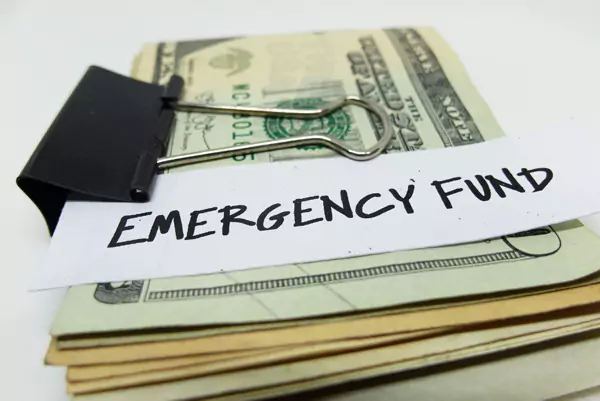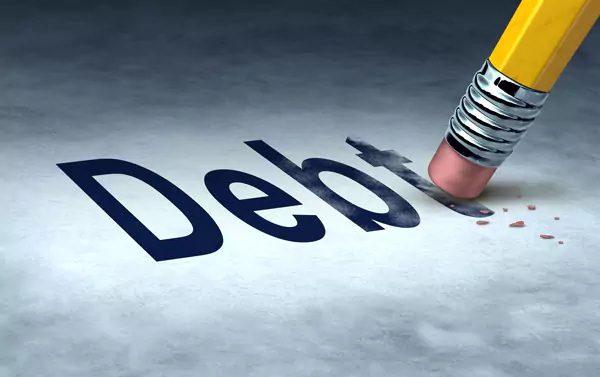Helpful Financial Tips During a Recession
Posted by Century Support Services on Sep 18, 2020

The Covid-19 pandemic has financially affected many American families, and plenty of people are dealing with significant financial pressures during this time. Whether you’re financially secure or living paycheck-to-paycheck, we can all benefit from these helpful financial tips during this uncertain recession.
Create a Monthly Budget to Follow
If you aren’t already following a monthly budget, now is the time to draft one. A budget gives you the information necessary to make informed financial decisions, and it’s almost impossible to widely manage your money without one. The budget won’t dictate what you can spend — you make those decisions — it simply gives you the data necessary to make the decisions you want to make.
Everyone should follow a budget in all financial circumstances, for there is perhaps no single financial tool that’s more empowering. When finances are strained during a recession, though, it’s especially important to have one.
Reduce Your Discretionary Spending
 As you draft your budget, focus on ways that you can reduce your discretionary spending. Discretionary spending is all of the money that you spend which it’s essential. It’s the money that’s spent at your discretion — and that discretion is more often a want than a need.
As you draft your budget, focus on ways that you can reduce your discretionary spending. Discretionary spending is all of the money that you spend which it’s essential. It’s the money that’s spent at your discretion — and that discretion is more often a want than a need.
How much you should reduce your discretionary spending depends on your present financial circumstances. You may need to make major cutbacks if you’ve been living beyond your means and have sustained an income decrease due to a Covid-19 related cause. Alternatively, you might need to make only minor cuts in your spending if you have savings and a stable income. Almost everyone can stand to make some discretionary spending reductions so that they can save a little more, however.
Build Up Your Emergency Savings
 Part of the reason to reduce your discretionary spending is so that you’re able to save more, and that savings should go toward an emergency fund. Unless you’re quite well off and have a guaranteed job, you probably should focus all of your savings on bolstering your emergency fund.
Part of the reason to reduce your discretionary spending is so that you’re able to save more, and that savings should go toward an emergency fund. Unless you’re quite well off and have a guaranteed job, you probably should focus all of your savings on bolstering your emergency fund.
An emergency fund is a short-term savings that you can access quickly should you need to. It may be stored in your checking account, a high-interest savings account or staggered certificates of deposit (although that’s less common). These are all guaranteed against loss and can be accessed quickly if you lost your income source or experience a financial emergency.
Importantly, this savings shouldn’t be placed in stocks, mutual funds, cryptocurrency, baseball cards or any other potential investment that could go down in value. The purpose of an emergency fund isn’t to get rich quickly or build wealth for retirement. It’s to ensure that you have money if you need it, so any account it’s put in should be guaranteed. Checking and savings accounts at banks are insured by the federal government.
Financial experts commonly recommend having 3 to 6 months of emergency savings, but you may want to even more given the current recession. Additionally, don’t let a 6-month figure scare you from starting an emergency fund if you don’t currently have one. Any amount you can put by for a rainy day could help see you through a crisis.
Pay Down Outstanding Debt
 If you’re comfortable with your emergency fund, paying down outstanding debt is always a wise financial move. It saves you money in interest payments no matter what the economic climate is, and it also reduces your potential risk exposure should something happen. If you can eliminate a debt payment, you’ll free up your monthly cash flow by the payment amount once the debt has been eliminated.
If you’re comfortable with your emergency fund, paying down outstanding debt is always a wise financial move. It saves you money in interest payments no matter what the economic climate is, and it also reduces your potential risk exposure should something happen. If you can eliminate a debt payment, you’ll free up your monthly cash flow by the payment amount once the debt has been eliminated.
Restructure Your Outstanding Debts
If you aren’t in a position to pay off debts immediately, restructuring outstanding debts can be another effective way to lessen the burden that they pose. Restructuring can help you pay off debts faster and/or free up money each month by reducing your minimum payments.
One way to restructure debts so that you’re able to better manage monthly payments is to enroll in a debt settlement program. A debt settlement program can help you pay off your debts for less than you owe, and it may also help you restructure your monthly payments. If you can’t make all of your payments right now, a program might let you choose a payment that you can afford. Contact a Century Certified Debt Specialist to receive your free debt assessment and customized program details.
Strengthen Your Finances During the Recession
No matter where you are financially right now, these tips can help you weather this recession. No one knows what tomorrow will bring, given the many uncertainties that we face, but using a budget, building up emergency savings and addressing debt will help you regardless of what comes.